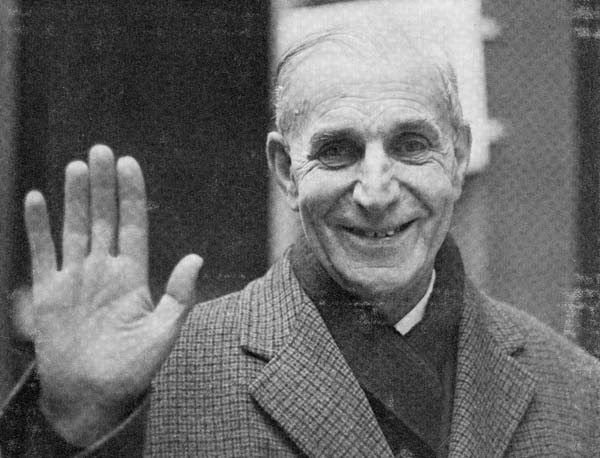Alfred Kastler
Alfred Kastler

© American Institute of Physics, Emilio Segre Visual Archives.
Nobel Laureate and Honorary Member Alfred Kastler was born in Guebwiller in Alsace on 3 May 1902. Kastler's interest in science was encouraged by his early math and science teachers. In particular, Kastler read Arnold Sommerfeld's book on atomic structure and spectral lines. This volume introduced him to the principle of the conservation of momentum applied to the exchange of energy between atoms and radiation. This principle would guide Kastler's research throughout his career.
Kastler entered the École Normale Superieure in Paris in 1921 and left in 1926 to teach high school students. He taught for five years and then began his career in higher education. In 1941, he was asked to help establish a physics teaching program at the Ecole Normale Superieure amid the German occupation. He stayed on at the school until 1968, training and collaborating with students who would become important people in optics in their own right. From 1968-1972, Kastler was director of research at the National Center for Scientific Research.
Kastler devoted himself to optical spectroscopy in particular atomic fluorescence and Raman spectroscopy, when not teaching. Collaborating with Jean Brossel, Kastler refined the technique of optical pumping. This method was a critical step toward realizing the maser and laser. Kastler won the Nobel Prize for physics in 1966 for the discovery and development of optical methods for studying Hertzian resonances in atoms.
In addition to the Nobel Prize, Kastler earned many honors for his work, including honorary doctorates and honorary memberships from several scientific societies. He received the first Mees Medal awarded by OSA, the Holweck Medal given by the British Physical Society, and the Gold Medal presented by the National Center for Scientific Research (CNRS). Kastler was a member of the Royal Flemish Academy of Belgium and the Paris Academy of Sciences, and he was a Fellow of OSA.
Kastler died on 7 January 1984.
I must confess that, at that time, I had absolutely no knowledge of the slowness of the relaxation processes in the ground state, processes which take place in collisions with the wall or with the molecules of a foreign gas.
Document Created: 26 July 2023
Last Updated: 28 August 2023
